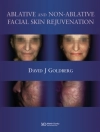This is the second volume in an interdisciplinary three-book series covering the full range of biological, clinical, and surgical aspects in the evaluation, diagnosis, and treatment of patients with craniofacial malformations. In this volume, readers will find detailed discussion of the treatment principles for craniosynostoses, orofacial clefts, branchio-oculo-facial syndromes, soft tissue malformations, dysgnathia and rare syndromes. In addition to description of important facets of treatment and the treatment planning process, guidance is offered on diagnosis and disease classification. Featuring numerous high-quality illustrations, the book will be of value for all clinicians and trainees who are involved in the management of patients with these malformations. The accompanying two volumes discuss the biological basis of disease, psychological aspects, and diagnostic issues and present surgical techniques with the aid of accompanying surgical videos.
Cuprins
Introduction.- I Craniosynostoses: 1. Diagnosis of Craniosynostoses.- 2. Classification of Craniosynostoses.- 3. History of Craniosynostoses Treatment.- 4. Treatment of Craniosynostoses.- II Branchio-oculo facial syndromes: 5. Diagnosis of Branchio-oculo facial syndromes.- 6. Classification of branchio-oculo facial syndromes.- 7. Treatment of Branchio-oculo facial syndromes.- III Rare craniofacial syndromes: 8. Classification of Rare craniofacial syndromes.- 9. Cromosomal aberrations.- 10. Conjoined twins.- 11. Rare craniofacial Soft tissue malformations.- IV Craniofacial soft tissue malformations: 12. Diagnosis of Craniofacial soft tissue malformation.- 13. Classification of craniofacial soft tissue malformations .- 14. Treatment Modalities for Craniofacial soft tissue malformation.- 15. Treatment of Craniofacial soft tissue malformation.- V Orofacial clefts: 16. Diagnosis of Orofacial clefts.- 17. Classification of Clefts.- 18. History of cleft treatment.- 19. Treatment of Orofacial clefts.- VI Dysgnathias: 20. History of orthognathic surgery.- 21. Classification of dysgnathic patients.- 22. Growth pattern in dysgnathic patients.- 23. Orthodontic analysis of dysgnathic patients.- 24. Early orthodontic treatment for dysgnathic patients.- 25. Treatment of dysgnathic patients with removable appliances.- 26. Treatment of dysgnathic patients with dentally fixed appliances.- 27. Treatment of dysgnathic patients with skeletal fixed appliances.- 28. Conventional planning of orthognathic surgery.- 29. Virtual planning of orthognathic surgery.
Despre autor
Ulrich Meyer, DMD, MD, MSc, Ph D, started to work in the field of craniofacial surgery in the 1990s, at the Department of Craniofacial and Maxillofacial Surgery, University of Münster, Germany. He completed his specialization in Oral and Maxillofacial Surgery in 1998 and was appointed Senior Physician at the Department of Oral and Maxillofacial Surgery, University of Münster in 2000, being promoted to Chief Senior Physician in 2002. In 2005 he was appointed university professor for life and senior consultant and deputy clinic director at the West German Maxillary Clinic (Westdeutsche Kieferklinik), Department of Maxillofacial and Plastic Surgery, Heinrich Heine University, Düsseldorf. In the course of his work in Münster and Düsseldorf, Dr. Meyer developed a broad spectrum of surgical techniques. More recently, he founded the interdisciplinary Craniofacial Center in Münster, where his main focus is the treatment of patients suffering from craniofacial deformities or diseases, in very close cooperation with geneticists, biologists, pediatricians, neurosurgeons, ENT specialists, orthodontists, and others.












